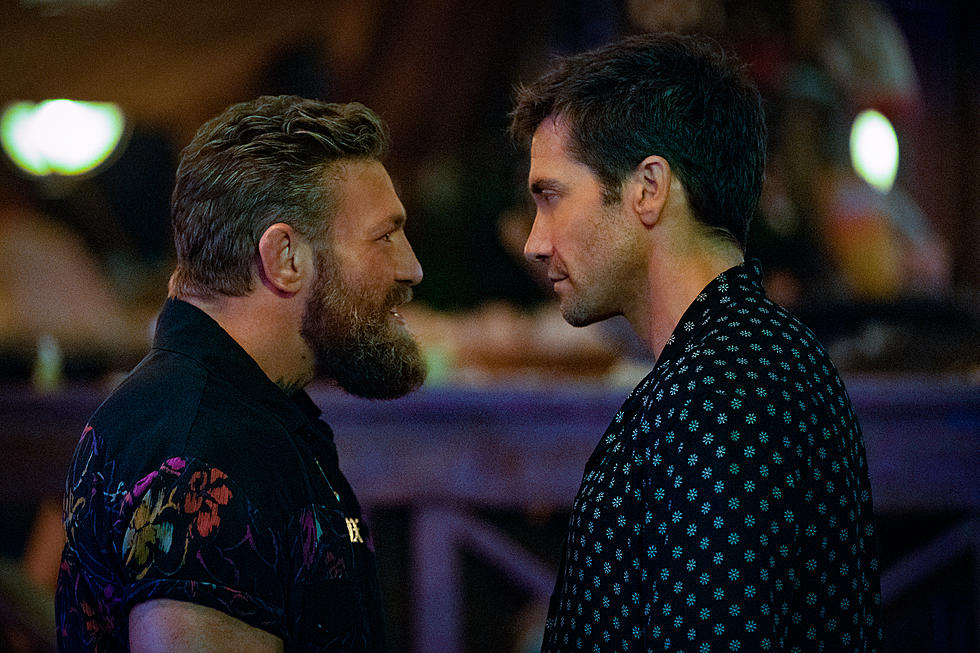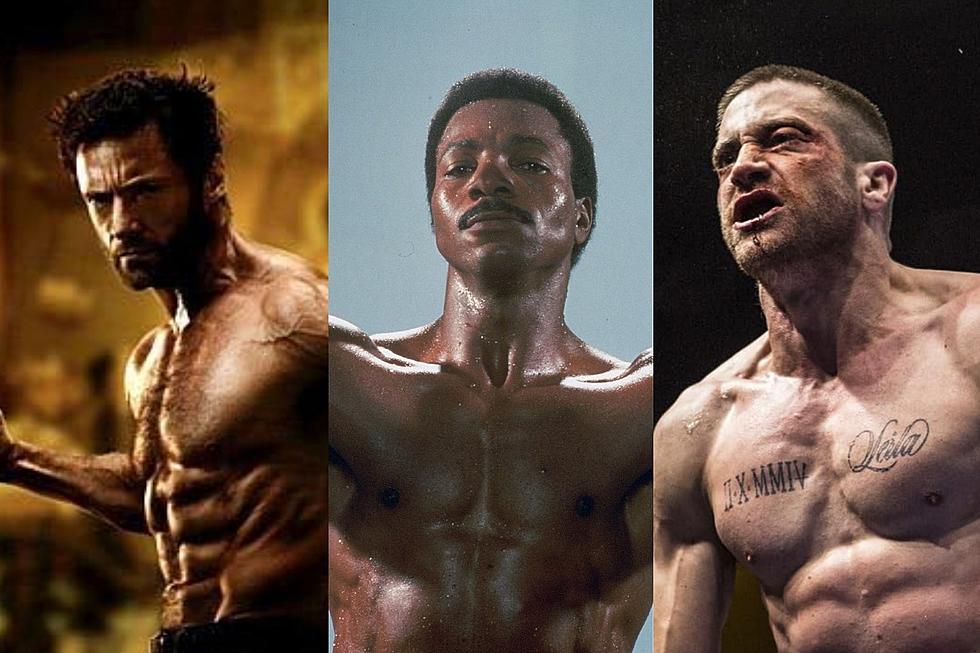
‘End of Watch’ Review
The aesthetics of a found footage movie -- a narrative designed to look like a documentary shot by the characters onscreen -- often lend absurd concepts a sense of realism they otherwise wouldn't have. The found footage aesthetics of the new cop movie 'End of Watch' have the opposite effect. The characters and their world look and sound authentic -- but the way those characters and their world are presented looks completely artificial. The nonfiction-style presentation feels like the most fictional part.
The film is half-heartedly structured as a homework assignment made by one of its two protagonists: LAPD Officer Brian Taylor (Jake Gyllenhaal), who has been assigned to make a movie in a film class he's taking in his pre-law program. Taylor decides to focus on the day-to-day lives of himself and his partner, Officer Mike Zavala (Michael Peña). Early scenes show the pair in the station locker room, talking directly into a small camcorder stuffed into Taylor's locker and attaching tiny lipstick cameras to the pockets of their uniforms. Soon they'll head out to patrol some of the nastiest neighborhoods in L.A. in a squad car wired with at least a half dozen cameras on the dashboard, mirrors, and windows.
Over the course of a few months, Taylor and Zavala answer a variety of seemingly unconnected calls that bring them to the attention of a dangerous drug cartel. An innocuous noise complaint introduces them to Big Evil (Maurice Compte), a deadly gang member who is nothing if not accurately named. Another call to check on a missing old woman, answered basically at random, sends them to a house used by the cartel for a truly despicable purpose. Taylor and Zavala do the right thing, and unwittingly put enormous bullseyes on their backs. Soon a hit is out on the partners, and the gangsters who accept the contract don't seem particularly concerned about giving Taylor the prerequisite happy ending for his movie.
It's just as well, since by that point writer/director David Ayer has basically abandoned the class-project conceit anyway -- maybe because Taylor's film class must be long over by the time 'End of Watch' builds to its big finish. Instead, Ayer has his traditional narrative cake and films it too. When it suits his dramatic purposes, Taylor's project comes into play; the partners investigate a crime scene, camera in tow, when a bunch of superior officers roll up screaming "Turn that camera off!" When it doesn't, Ayer employs angles that no camera within the movie could capture; an LAPD squad briefing, for example, features at least ten camera angles, most of which are nowhere near Taylor or Zavala.
Ayer's choice to have it both ways certainly lends 'End of Watch' a freewheeling, go-anywhere-do-anything energy, but it also tends to confuse and distract the audience. Are we watching a class project? Then why is there a sex scene? Are we watching a Hollywood movie? Then why can't anyone hold the camera steady?
At least Gyllenhaal and Peña maintain a steadier handle on their characters' relationship. 'End of Watch' may not pass muster as a documentary but the actors more than sell the partners as brothers in arms. While most found footage movies take place within a prescribed set of time -- a few days lost in the woods, or a series of nights in a couple's haunted bedroom -- 'End of Watch' sprawls over months and months of patrols, giving Ayer the opportunity to flesh out Taylor and Zavala's quirks and foibles.
The way these men shoot the breeze, the way they make fun of each other's skin color and family customs, the way they toast each other at weddings and vow to defend each other to the end of their lives -- it all adds up to a really compelling portrait of a friendship and a partnership. If 'End of Watch' had lost the found footage gimmick, it could have been really something. Instead of stripping away the artifice, it just adds one more layer.
'End of Watch' opens in theaters on September 21st.
Matt Singer is a Webby award winning writer and podcaster. He currently runs the Criticwire blog on Indiewire and co-hosts the Filmspotting: Streaming Video Unit podcast. His criticism has appeared in the pages of The Village Voice and Time Out New York and on ‘Ebert Presents at the Movies.’ He lives in Brooklyn with his wife, dog, and a prop sword from the movie ‘Gymkata.’
More From ScreenCrush









